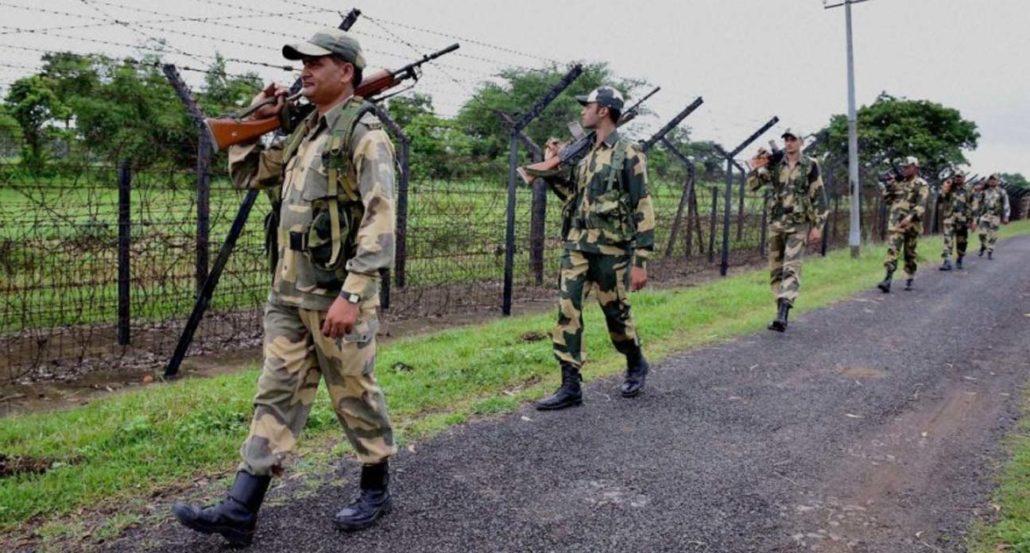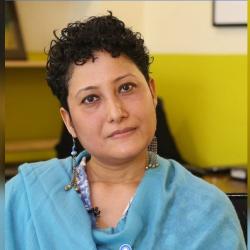The Armed Forces (Special Powers) Act 1958 (AFSPA) was briefly introduced in Assam in 1990. The act has been in force in Assam since then. On August 28, the state government again declared the entire Assam as a disturbed region and extended the period of the act by another six months. The AFSPA is still in force in several states, including Assam and Manipur in the northeast. Imram Sharmila started her hunger strike in Manipur on November 5, 2000 protesting AFSPA.
The Union Government has recently taken another decision on three states adjoining international borders while black laws like AFSPA continue. Following the decision, border security forces in Assam, Punjab and West Bengal will be given more power to BSF in a shorter time than ever before. BSF in the state will henceforth be able to carry out arrests, seizure of goods and search operations without the permission of local police in the area covering 50 km from the international border. The BSF will also get this power in Assam, Punjab and West Bengal as well as the union territories of Jammu and Kashmir and Ladakh.
How strong will BSF be in the states?
The amendment to the Border Security Forces (BSF) Act has given more authority to the officers of the forces in three states of Indo-Pakistan and the Indo-Bangladesh border under the Union Home Ministry. The Union Government has given this power to BSF by revoking the earlier guidelines issued in 2014 under the BSF Act, 1968 through a notification issued on October 11.
As per the 2014 guidelines, BSF's capacity in Rajasthan, Punjab, West Bengal and Assam is only 15 km from the border. However, BSF in Gujarat was given the authority to deploy its power up to 80 km from the border. As per the new directive on October 11, BSF will be able to conduct search operations and seize goods and services without contacting the local police - without an order or warrant from magistrates in areas up to 50 km from the border in Assam, Punjab and West Bengal.
The Union Home Ministry said the decision was taken in the face of an increase in incidents of miscreants using drones from across the border. BSF has also been given more powers in Assam and West Bengal to curb multiple illegal trade that has increased along the Bangladesh border.
BSF sources said the government's decision is likely to substantially reduce the number of crimes in areas adjoining international borders. Sources said the BSF is bound to hand over the arrested person to the local police within 24 hours at the end of the initial interrogation even if they get the authority to arrest, search and seize. The BSF Act has no trial power on suspected offenders.
The Chronology-
— Randeep Singh Surjewala (@rssurjewala) October 14, 2021
• 25,000 Kgs of Heroin Drugs came through Adani Port, Gujarat on 9/6/2021.
• 3,000 Kgs of Heroin Drugs caught at Adani Port, Gujarat on 13/9/2021.
• BSF jurisdiction unilaterally increased from 15 Kms to 50 Kms in Punjab.
Federalism Dead, Conspiracy Clear.
Opposition to Punjab - West Bengal
Punjab has completely opposed the central government's decision. Punjab Chief Minister Charanjit Singh Channi termed the Centre's decision an attack on the federal system. Punjab's chief minister has also demanded the government withdraw such anti-constitutional decisions.
"I strongly condemn the GoI's unilateral decision to give additional powers to BSF within the 50 km belt running along the international borders, which is a direct attack on federalism. I urge the Union Home Minister @AmitShah to immediately roll back this irrational decision," the Chief Minister tweeted.
Punjab Deputy Chief Minister Sukhjinder Singh Randhawa also seems to have strongly opposed the decision. He said: 'BSF does not have the right to do police-like work within a full state. BSF's job is to ensure border security. The state's opposition and one-time BJP ally Shiromani Akali Dal has also termed the central government's decision as rash. Akali Dal leader Daljit Singh termed such a decision a record of ruling President in more than half of Punjab by the back door.
The central government's decision has been strongly opposed by the Mamata Banerjee-led state government in West Bengal. West Bengal transport minister and senior Trinamool leader Firhad Hakim termed the Centre's decision "rush and aggressive."The Central government has wiped out the country's united national system. The law and order issue is entirely state-owned in the case of a full state. But the Modi government has repeatedly continued its efforts to interfere in internal affairs in the state through central agencies. It is unfortunate for democracy. Hakim has thus criticised the Centre.
I strongly condemn the GoI's unilateral decision to give additional powers to BSF within 50 KM belt running along the international borders, which is a direct attack on the federalism. I urge the Union Home Minister @AmitShah to immediately rollback this irrational decision.
— Charanjit S Channi (@CHARANJITCHANNI) October 13, 2021
Assam Government welcomes
The Union government's decision to give more powers to BSF was welcomed by the Assam government led by Dr Himanta Biswa Sharma, who extended the AFSPA period again by six months on August 28. Replying to a question by the National News Agency, the Chief Minister said that the decision to increase the capacity of BSF would substantially reduce crime in Assam areas adjoining the Bangladesh border.
'This decision will enable BSF to work closely with local police to prevent various crimes, illegal trafficking, migration etc. from across the border. The centre's decision will further strengthen national security and interests. Chief Minister Dr. Himanta Biswa Sharma made the remarks on enhancing the power and authority of the BSF.
However, opposition parties and national parties in Assam have not reacted in this regard. While contacting two top leaders of newly formed nationalist political parties informed that they were not aware of the issue. Similarly, a top leader of a national organisation also expressed ignorance about the issue and said he would take cognizant of the matter and comment.
It may be recalled that the total length of the border area of Assam touching Bangladesh is about 262 km. Four districts of Assam are adjacent to the international border of Bangladesh. The four districts are Dakshin Shalmara, Mankachar, Dhubri, Kachar and Karimganj. That is, with the increase in the capacity of BSF, BSF will now get direct authority in most parts of these four districts as well as in some parts of the districts adjoining the districts.
Modi opposed it
The BSF Act was introduced in Parliament in 2012 for amendment by the then Manmohan Singh led UPA government. The amendment proposal proposed to empower and empower BSF within a certain distance from the border besides the border. The UPA government's decision was strongly opposed by the then Gujarat chief minister Narendra Modi.
Modi wrote to Prime Minister Manmohan Singh demanding the government withdraw the proposal. Modi also targeted the Manmohan government in a tweet over the reference. In a tweet on April 14, 2012 at 6.33 pm, Modi wrote, "This is another attempt by the Centre to weaken the federal structure of the country. The present central government is hell bent to snatch powers of the state and is conspiring to weaken the federal structure” he said.
The letter clearly mentioned that BSF work was only on the border by the then chief minister and present Prime Minister Narendra Modi. Modi also warned Manmohan Singh that allowing BSF to interfere in law and order aspects within the state instead of the border is against the constitution.
What was in the UPA government's amendment proposal?
In 2012, the AMENDMENT to the BSF Act 1968 empowered the BSF to arrest any suspect in an area 80 km from the border in Gujarat as well as search operations against such acts and seize illegal goods. Along with Gujarat, the then UPA government empowered BSF in 50 km area of Rajasthan and 15 km in Punjab, Assam and West Bengal through the said amendment. In addition, the amendment empowered and empowered BSF across the entire territory of Jammu and Kashmir and 5 northeastern states of Manipur, Meghalaya, Tripura, Nagaland and Mizoram touching the international border.
Significantly, the UPA government was in Rajasthan while Gujarat had a BJP-led government when it amended the act. Meanwhile, the UPA government covered up to 50 km of area in Congress ruled Rajasthan instead of empowering BSF in an area of up to a maximum of 80 km from the border in Gujarat through amendments to the act.
Importantly, the one Narendra Modi who opposed giving more power to the BSF when he was chief minister of Gujarat on October 11 decided to give more power to the BSF in two anti-BJP states as well as in BJP ruled Assam. The difference is that in 2012 Modi wrote and tweeted letters opposing it to the then Prime Minister. Punjab Chief Minister Charanjeet Singh Sanni tweeted the same issue to Prime Minister Modi this time. However, just as the Congress-led Centre's decision was welcomed by congress-led states in 2012, the BJP-led Assam government welcomed the BJP-led Centre's decision this time too.
- 15576 reads








Add new comment